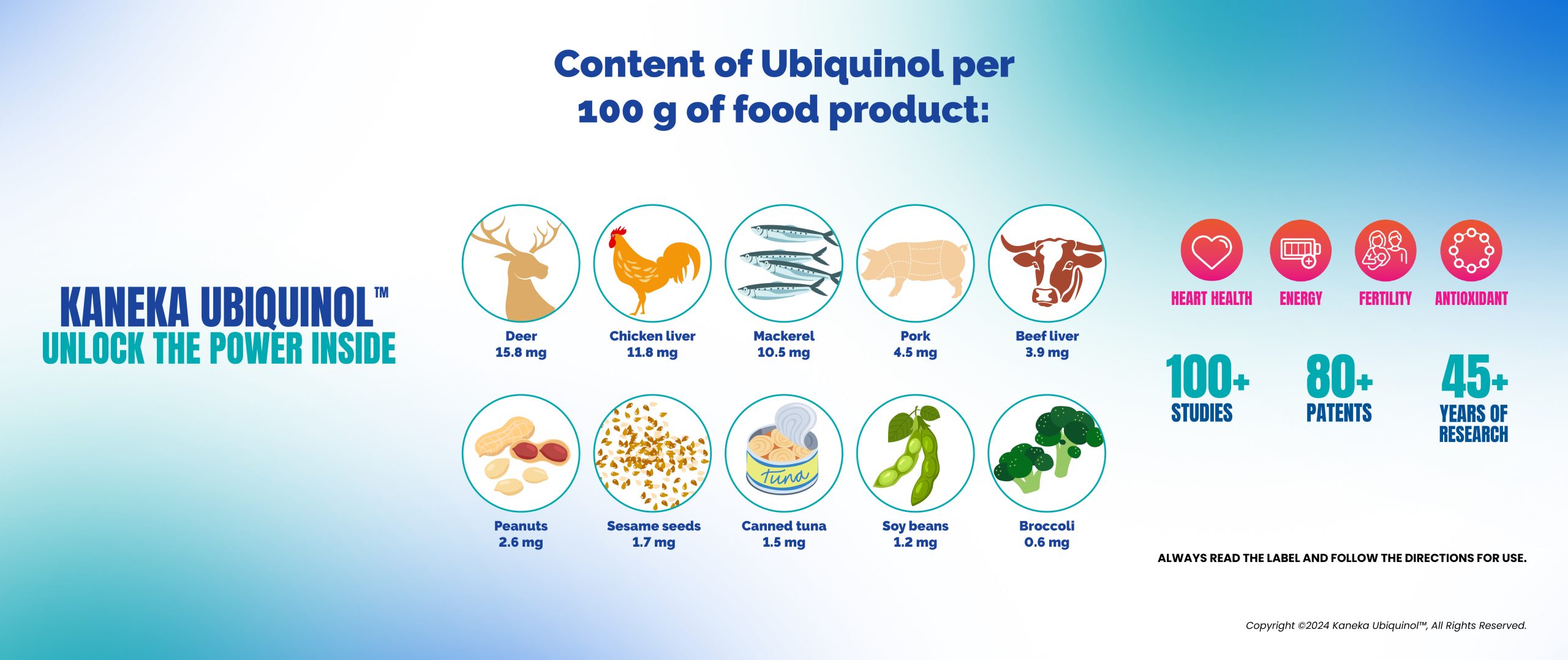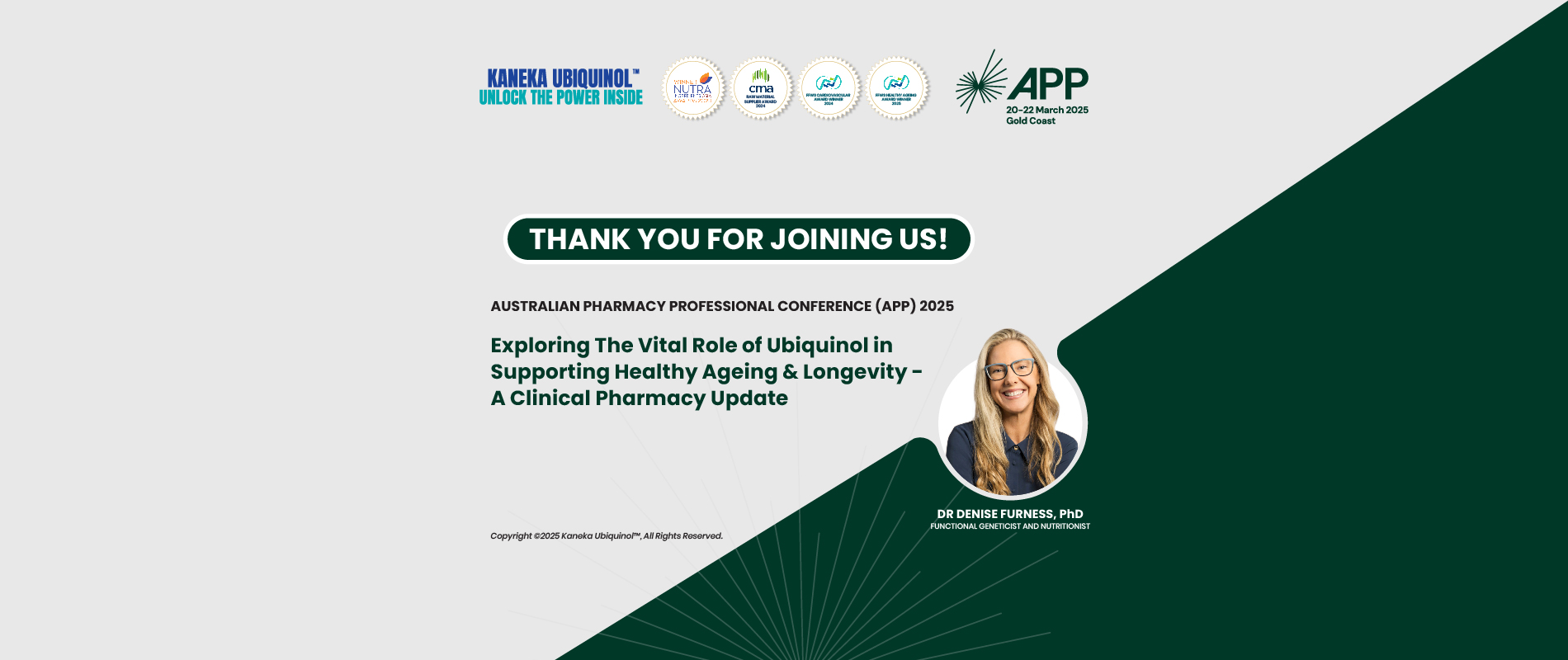How To Increase Your Chances of Conceiving This Valentine’s Day with Ubiquinol
Feb 2020Recent Article
As the ‘official day’ to celebrate love, Valentine’s Day symbolises all things Cupid. But amidst the hearts and arrows, many couples may be wanting to take the plunge into parenthood and start trying for a baby. If you and your partner are wanting to start trying for a family this Valentine’s Day, it’s important to begin preparing to help ensure your bodies are in the best shape possible to conceive.
So how can you give yourself the best possible chance of pregnancy?
Eat fertility foods
Both women and men can help improve their chances of falling pregnant by maintaining a healthy weight and living a healthy lifestyle, which will help to balance men and women’s hormones.[1] However, for women particularly, eating foods that are rich in folic acid, such as leafy greens, citrus and beans; vitamin B12, from milk, eggs and chicken; and omega 3 fatty acids, in foods like salmon and walnuts, can improve chances of conception.
Up your antioxidant intake
Ubiquinol, the active antioxidant form of CoQ10, may help increase your likelihood of conception. For a healthy pregnancy and a healthy baby, the ova (or egg) and the sperm must be in optimum condition. Just after conception, the cells of a developing embryo begin to divide and they can only do this if that embryo has formed from a healthy egg and sperm.[2] It appears that CoQ10 may help in this process by assisting cells to function and divide normally. Studies have also found that the presence of Ubiquinol in the cell membrane may help to reduce cell and DNA damage caused by free radicals, which has been proven to improve egg and sperm health.
Reduce exposure to toxins
Acknowledging the role your surrounding environment plays in your overall health is a frequently overlooked, but is an important consideration when assessing the chance for conception.[3] Endocrine disrupting chemicals (EDC) include parabens, phthalates, pesticides, herbicides and insecticides; all of which are commonly found in everyday items like cosmetics and personal care products, food products, and cleaning products.[4] Whilst it is difficult to completely avoid chemicals in your environment, there are steps you can take to reduce exposure to them and ensure you don’t risk your chance of conception. Always wash your fruit and vegetables, and try opt for organic produce and animal products where possible. Cutting down on plastic usage and personal care products that contain BPA and phthalates will also enable lower levels of exposure to these potential harms.
Speak to your healthcare practitioner before supplementing with Ubiquinol and to find out more about Ubiquinol for improved fertility.
[1] https://www.yourfertility.org.au/everyone/lifestyle/nutrition-and-micronutrients
[2] https://www.betterhealth.vic.gov.au/health/ConditionsAndTreatments/infertility-in-women
[3] https://www.yourfertility.org.au/everyone/lifestyle/chemicals-our-environment
[4] https://www.yourfertility.org.au/everyone/lifestyle/chemicals-our-environment
You can share this by:
Keep up-to-date with Ubiquinol News
Ubiquinol Headlines
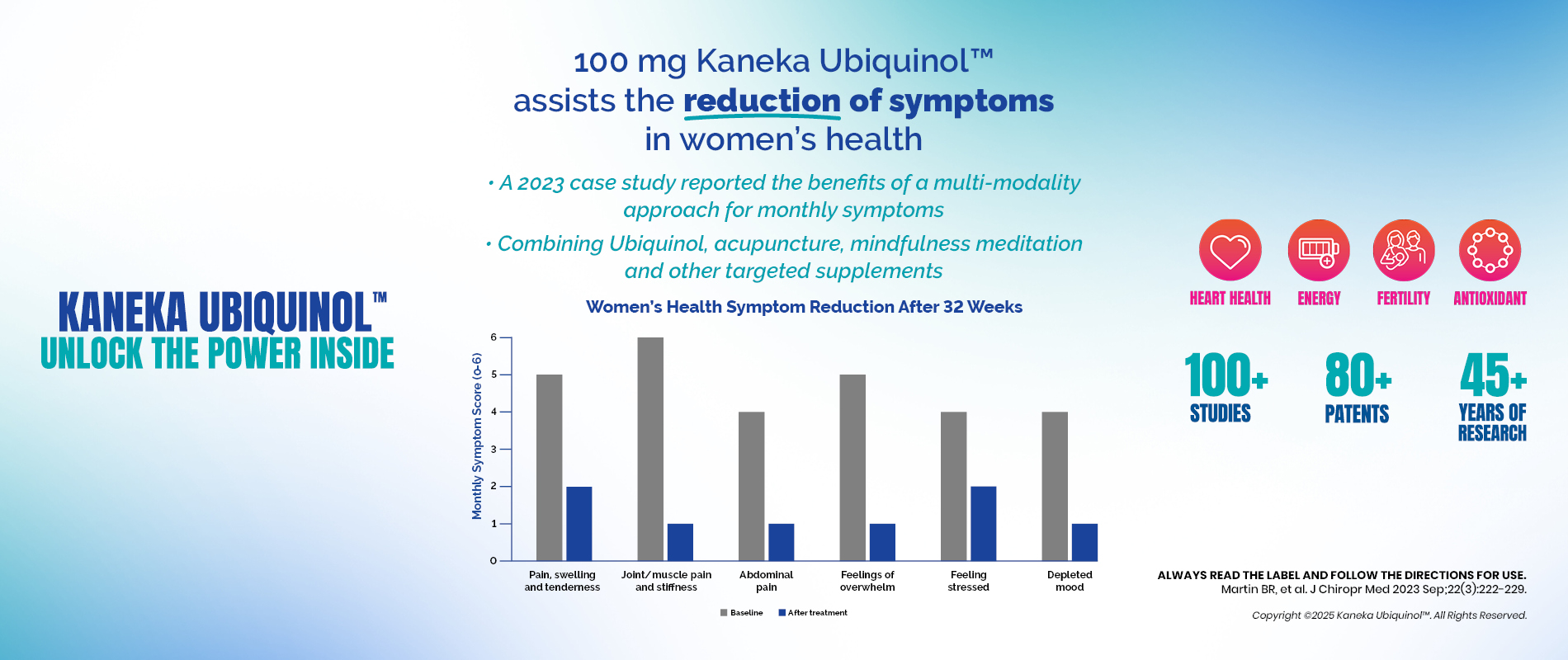
Ubiquinol for Women’s Health
Apr 2025Category: Ageing, Antioxidants, Fertility, Kaneka, Mitochondrial health, Ubiquinol, wellness, Women's HealthRead More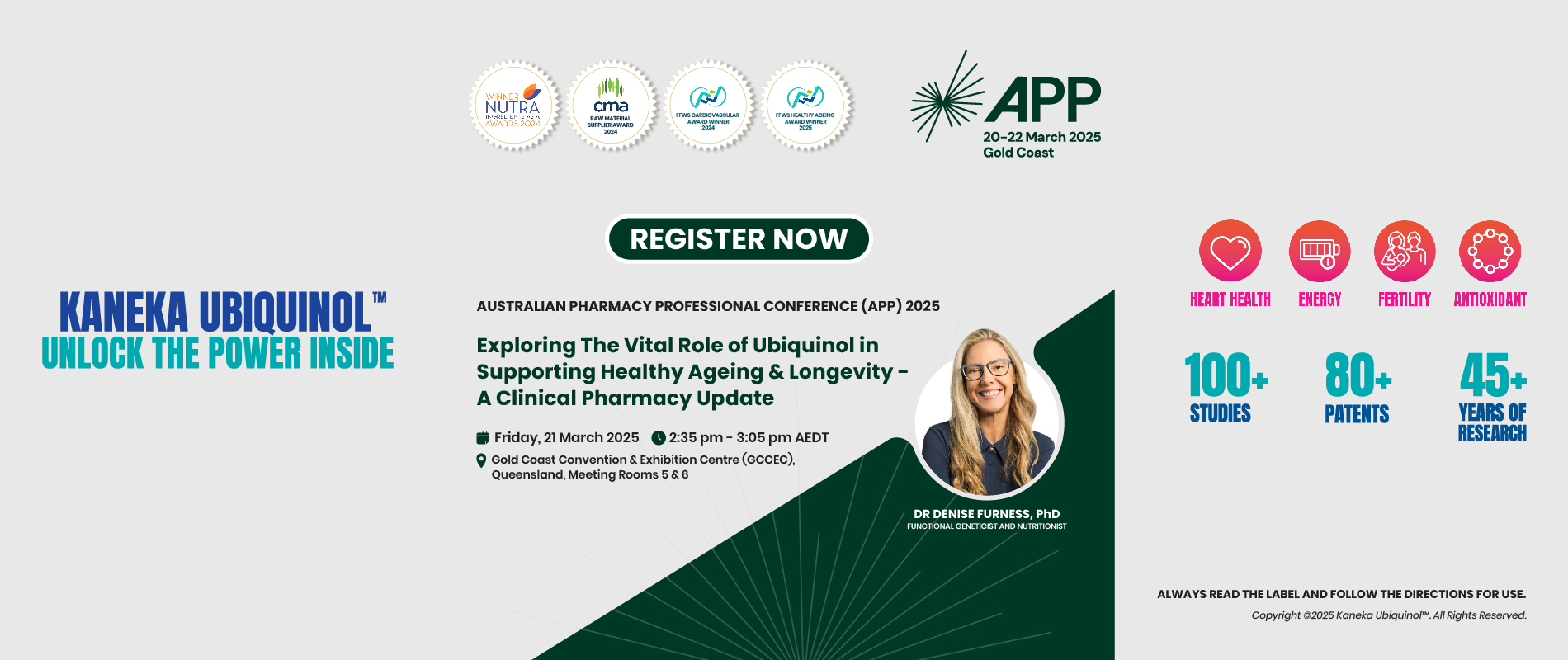
Kaneka Ubiquinol™ at APP 2025: Advancing Healthy Ageing & Longevity
Mar 2025Category: Ageing, Antioxidants, APP, Conference, Conferences, Energy, Fatigue, Health, Health Industry, healthy ageing, Kaneka, Mitochondrial health, Nutrition, UbiquinolRead More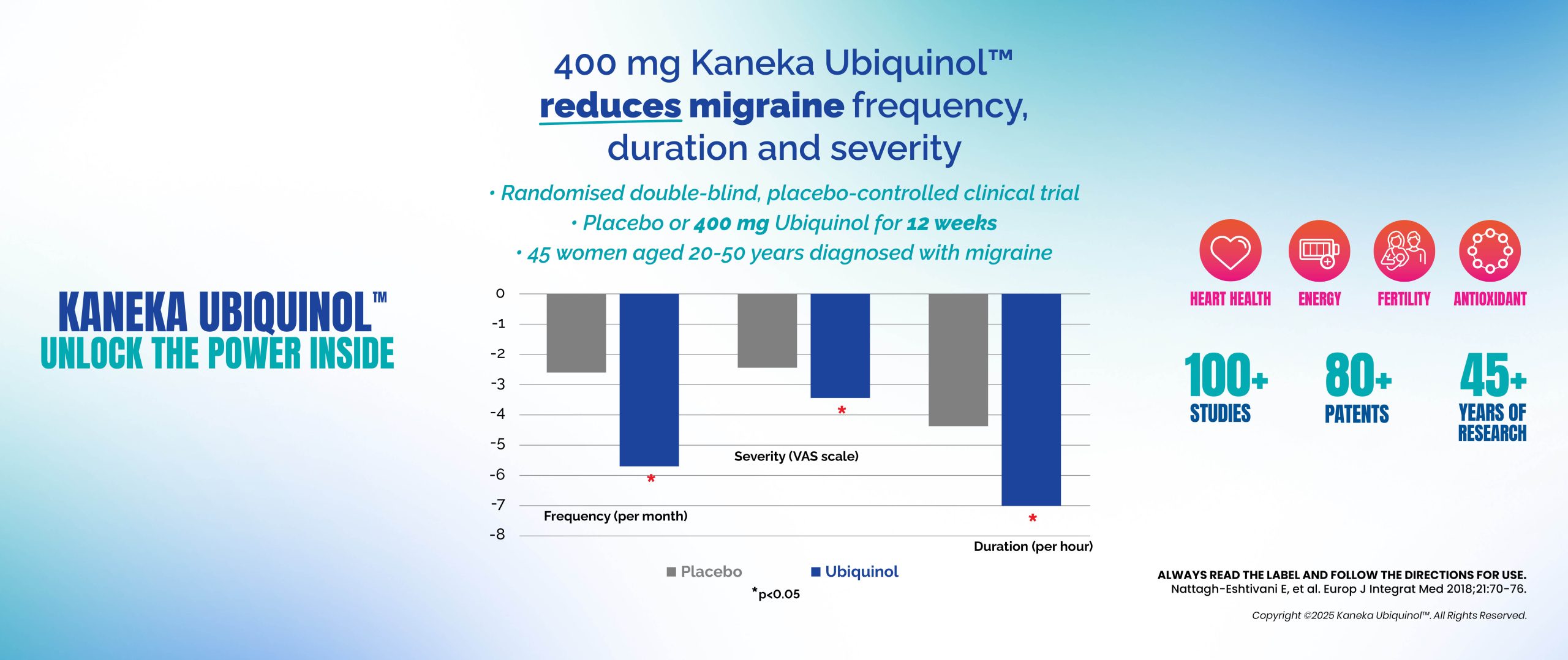
Ubiquinol: Supporting Migraine Relief Through Cellular Energy
Jan 2025Category: Antioxidants, complementary medicine, Energy, Fatigue, Health, Health Industry, healthy ageing, Kaneka, Mitochondrial health, Nutrition, Stress, Ubiquinol, Vitamins, wellnessRead More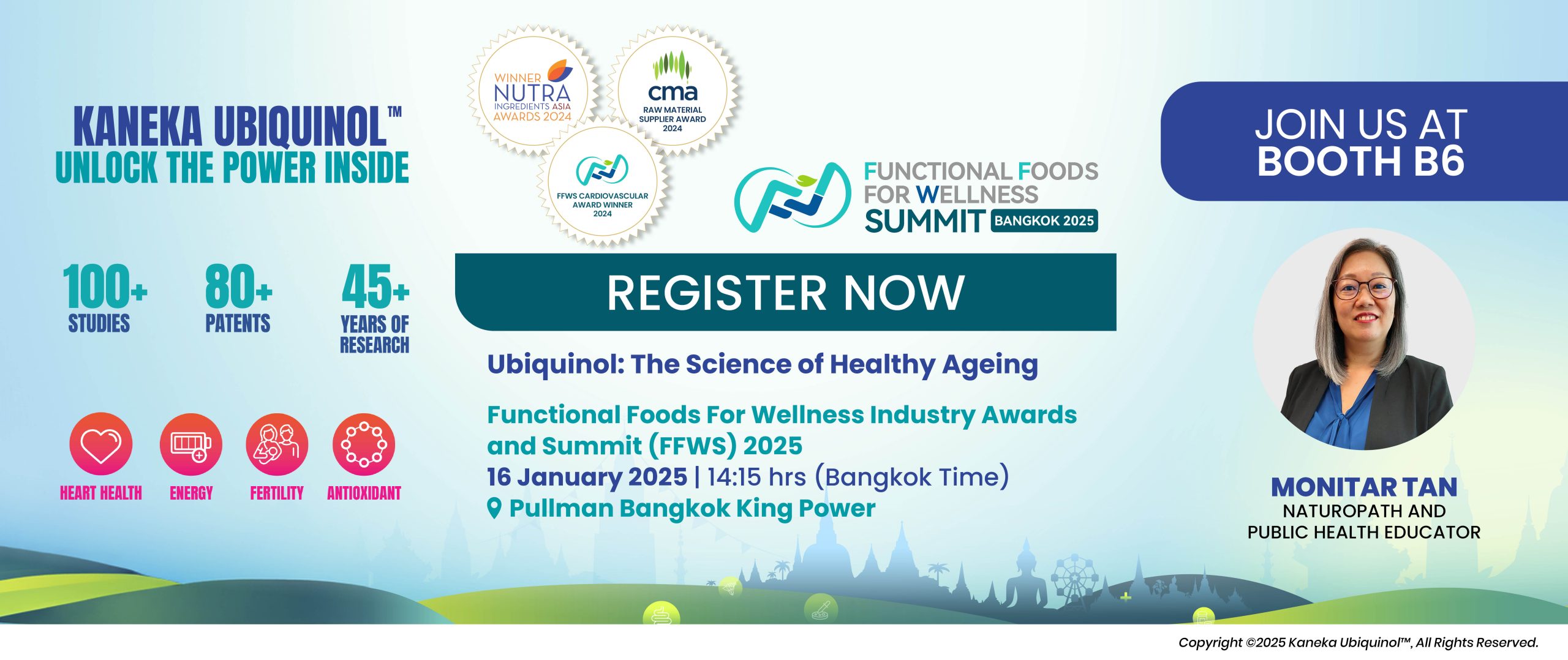
Kaneka Ubiquinol™ at Functional Foods for Wellness Industry Awards and Summit, #FFWS2025
Jan 2025Category: Ageing, Antioxidants, Awards, cardiovascular health, Conference, Conferences, Energy, Fatigue, FFWS2025, Health, Health Industry, healthy ageing, Kaneka, Menopause, Mitochondrial health, Nutrition, Ubiquinol, VitaminsRead More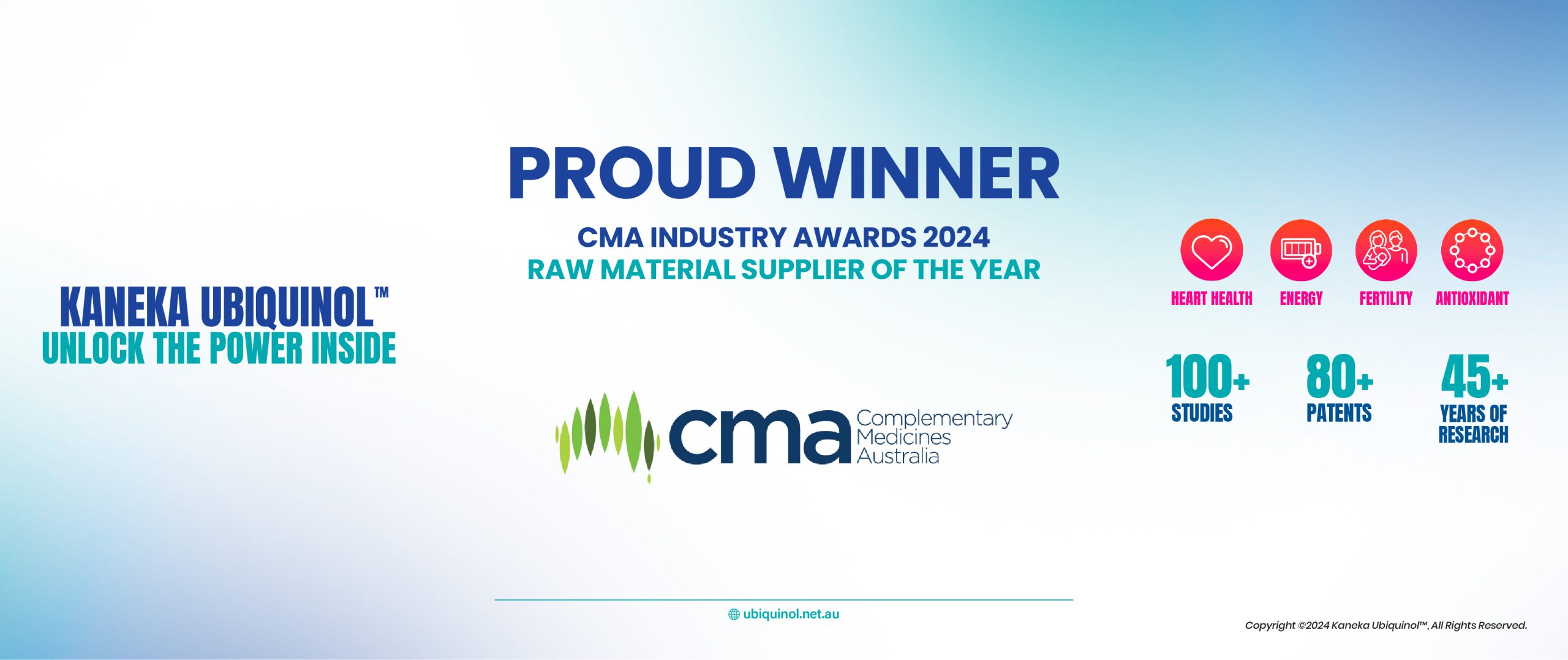
Kaneka Ubiquinol Wins Prestigious Complementary Medicines Raw Material Supplier of the Year Award 2024
Dec 2024Category: Ageing, Awards, cardiovascular health, complementary medicine, Conference, Conferences, Endurance, Energy, Fatigue, Fertility, Fitness, Health, Health Industry, healthy ageing, Heart, Immunity, In The News, Kaneka, Lungs, Memory, Mitochondrial health, Nutrition, Online, Stress, Ubiquinol, Vitamins, wellnessRead More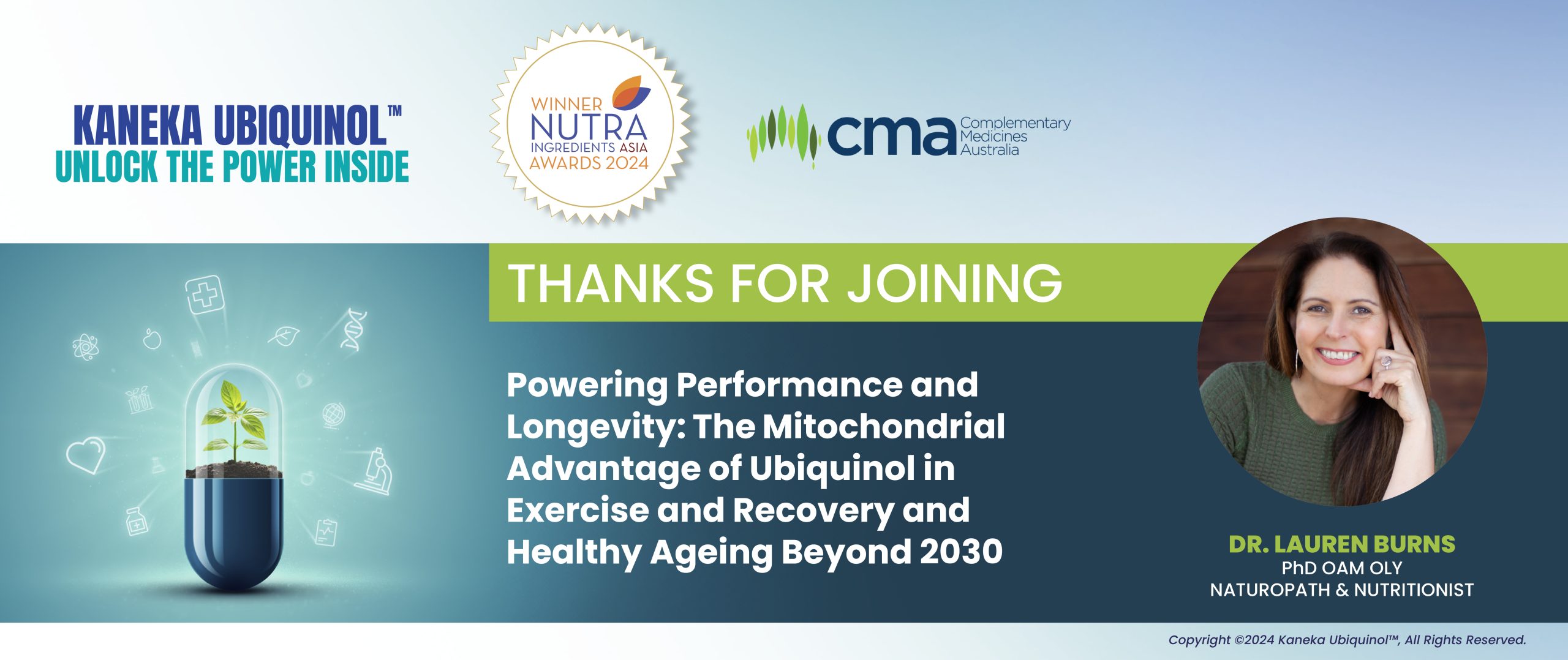
“Powering Performance and Longevity: Kaneka Ubiquinol™ at the CMA Annual Conference 2024”
Nov 2024Category: Ageing, Antioxidants, Awards, cardiovascular health, chronic fatigue syndrome, complementary medicine, Conference, Conferences, Endurance, Energy, Fatigue, Fertility, Fitness, Health, Health Industry, healthy ageing, Heart, In The News, Kaneka, Mitochondrial health, Online, Ubiquinol, VitaminsRead More
Natural Health Product Innovation Expo 2024
Nov 2024Category: Ageing, Antioxidants, cardiovascular health, Cholesterol, chronic fatigue syndrome, Conference, Conferences, Endurance, Energy, Fatigue, Fertility, Fitness, Health, Health Industry, healthy ageing, Heart, Kaneka, Menopause, Mitochondrial health, NHNZ, Nutrition, Stress, Ubiquinol, Vitamins, wellnessRead More